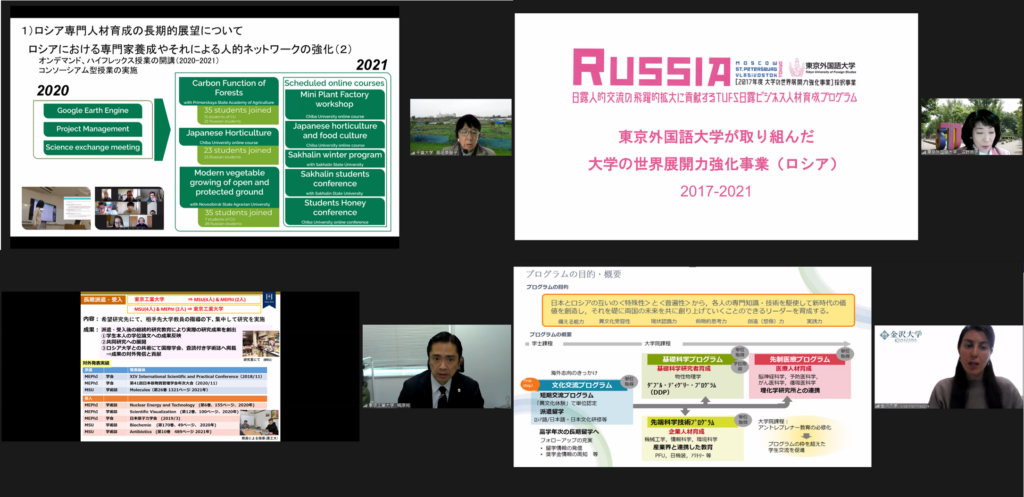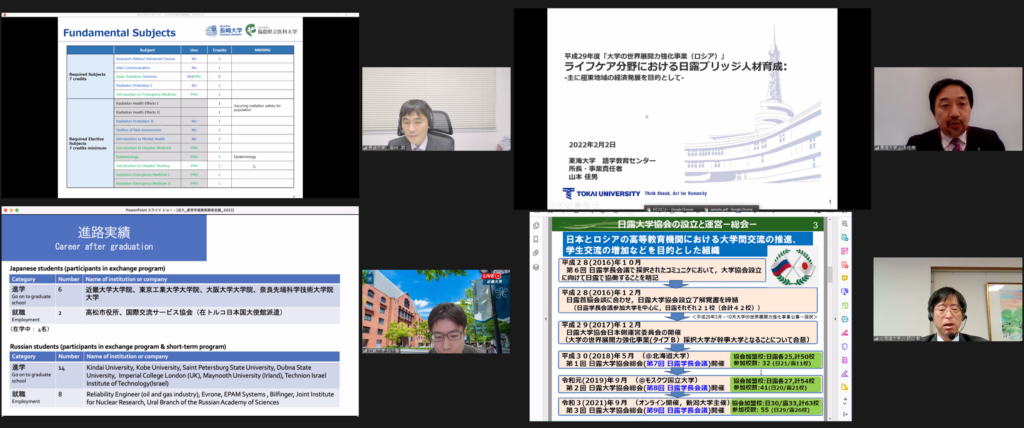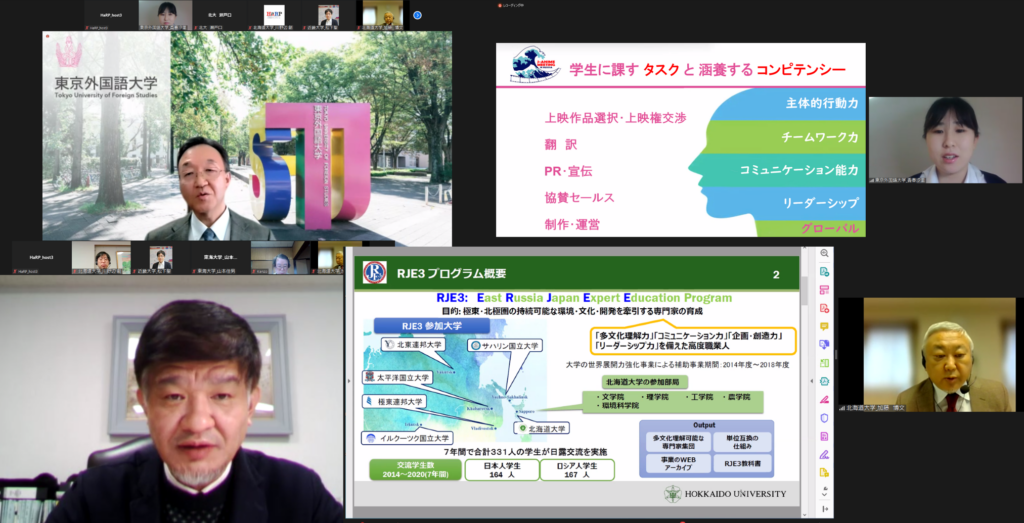On the afternoon of Wednesday, February 2, 2022, the FY2021 Inter-University Exchange Project (Russia) Summary Report Meeting was held. As the grant period of MEXT’s FY2017 Inter-University Exchange Project with Russia, etc. will end in FY2021, this conference was held to review the results of the five-year project; examine the direction of Japan-Russia human resource development at universities, which is rooted in the needs of society; and share information and know-how that will be useful for promoting the project.
Due to the spread of COVID-19, the meeting for this fiscal year, which marks the end of five years of the project, was held online, as was the previous year’s meeting. A total of 101 people participated in the meeting, including 79 from 21 Japanese universities, 4 from the Ministry of Education, Culture, Sports, Science and Technology (MEXT), 7 from 6 related organizations in Japan and Russia, and 11 from 10 local governments and businesses.
The first half of the report meeting began with opening remarks by Mr. Yokota, who is the Executive Vice President of Hokkaido University, as well as guest remarks by Ms. Kishimoto, who is the team leader of MEXT’s International Strategy Project for Higher Education. After these remarks, eight universities (Chiba University, Tokyo University of Foreign Studies, Tokyo Institute of Technology, Kanazawa University, Nagasaki University/ Fukushima Medical University, Tokai University, and Kinki University) that were selected for projects that promote international exchange (Type A) made presentations on the results of seven projects and their prospects after the completion of the grant project. Each of the universities presented their achievements, which include the establishment of a double degree program, the development of a short-term program into a full-time study abroad program, the implementation of a mutually beneficial internship program in cooperation with private companies, and the strengthening of the Japan-Russia network through the establishment of a consortium and alumni association. In addition, Hokkaido University and Niigata University, which were selected for platform-building projects (Type B), explained the platform functions that will be maintained after the end of the grant period.

, Tokyo Institute of Technology, Kanazawa University )

In the second half of the meeting, the Tokyo University of Foreign Studies introduced J-Anime Meeting in Russia, a collaborative internship program with private companies, and participating students and companies gave presentations on the results gained through their involvement in the program, thereby sharing the significance of cultivating in universities the human resources that society needs. Then, members from Hokkaido University gave a presentation on the ongoing MEXT-commissioned Study in Japan program and introduced a case study of the self-sustained operation of the Japan-Russia human resource development program. They touched on the importance of developing human resources in the long-term by providing systematic support for international students, including career paths, and building a network of alumni beyond the university.

Presentation by moderator Professor Setoguchi, Professor Kato
Members from MEXT commented that in the projects of each university, joint study between Japanese and Russian students; collaboration among universities, companies, and regions; and participation of students in social activities such as internships have been realized, and that these projects could serve as models for projects to strengthen the global development capabilities of universities and therefore they hoped exchange between Japan and Russia would be promoted even after the end of the grant period.
The report meeting ended on a high note, with participants expressing their intention of continuing to work on each project in cooperation with other universities even after the end of the grant period, using as assets the know-how and networks cultivated by each university through the exchange between more than 1,000 students from Japan and Russia.
